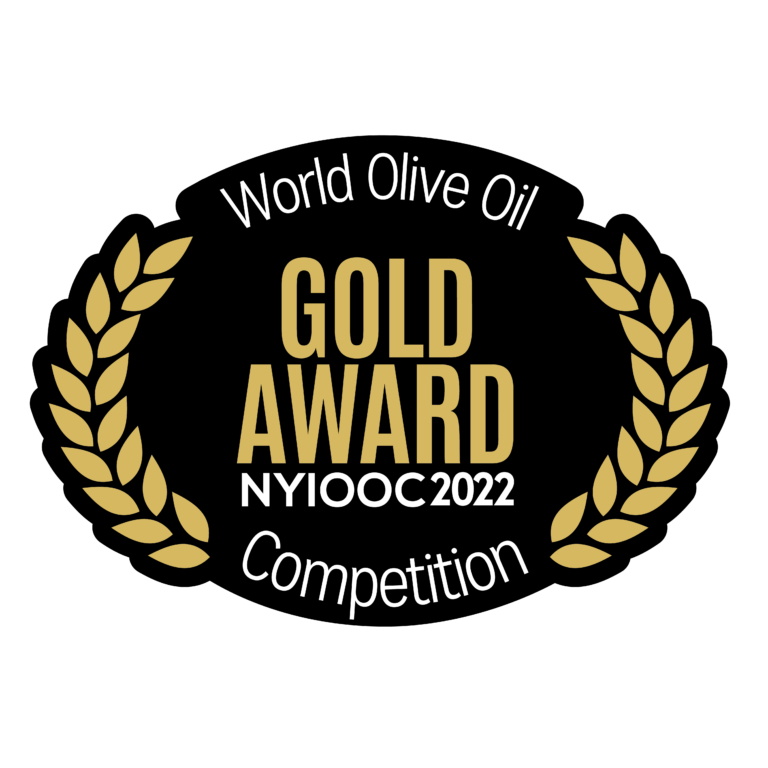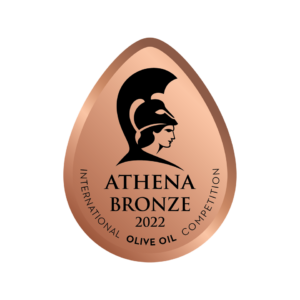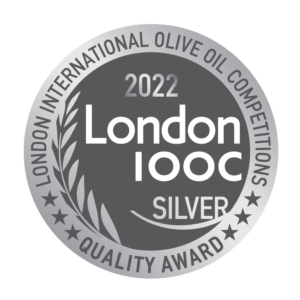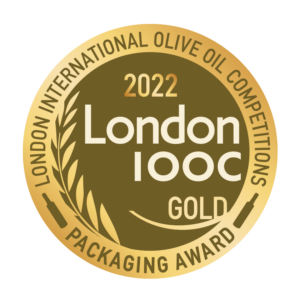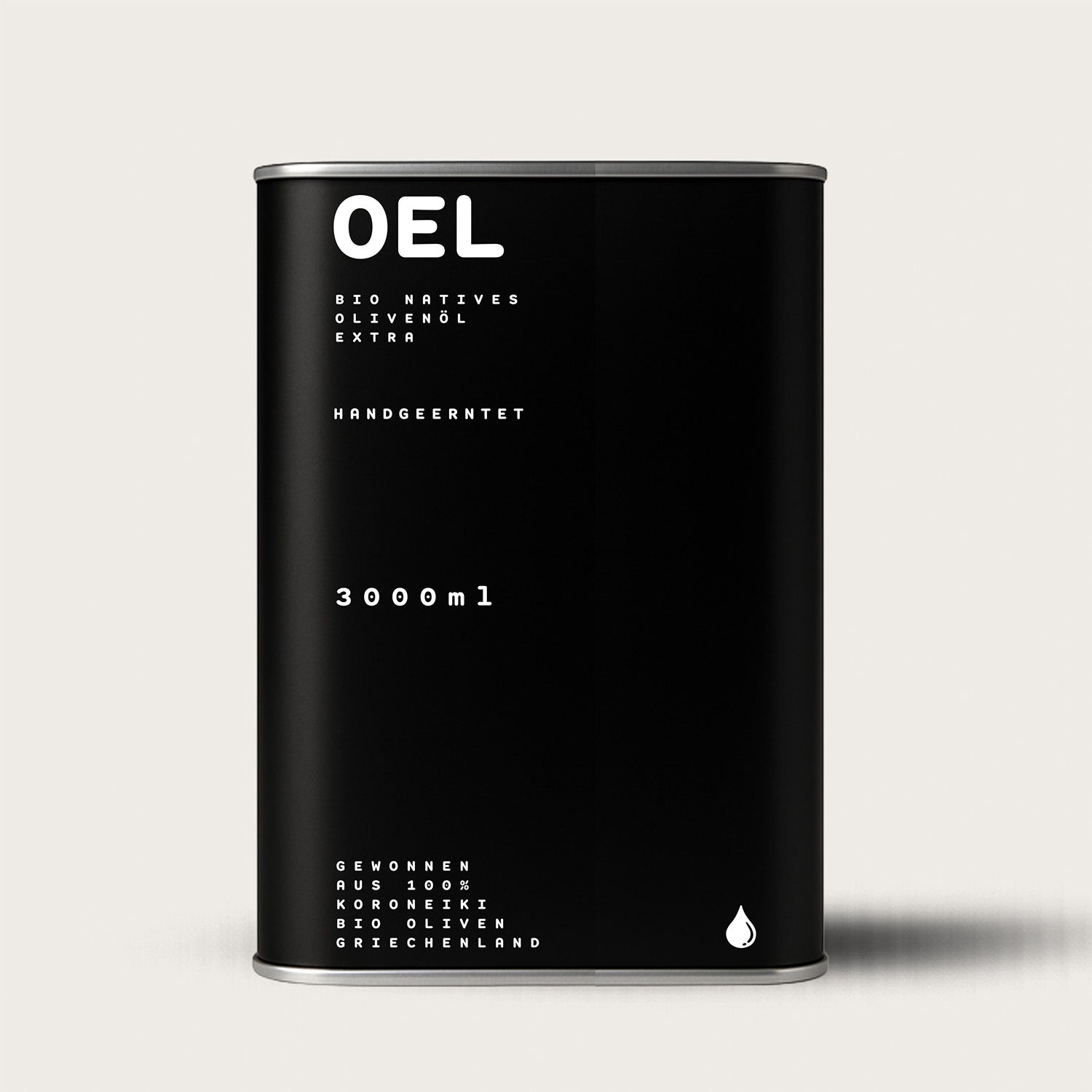

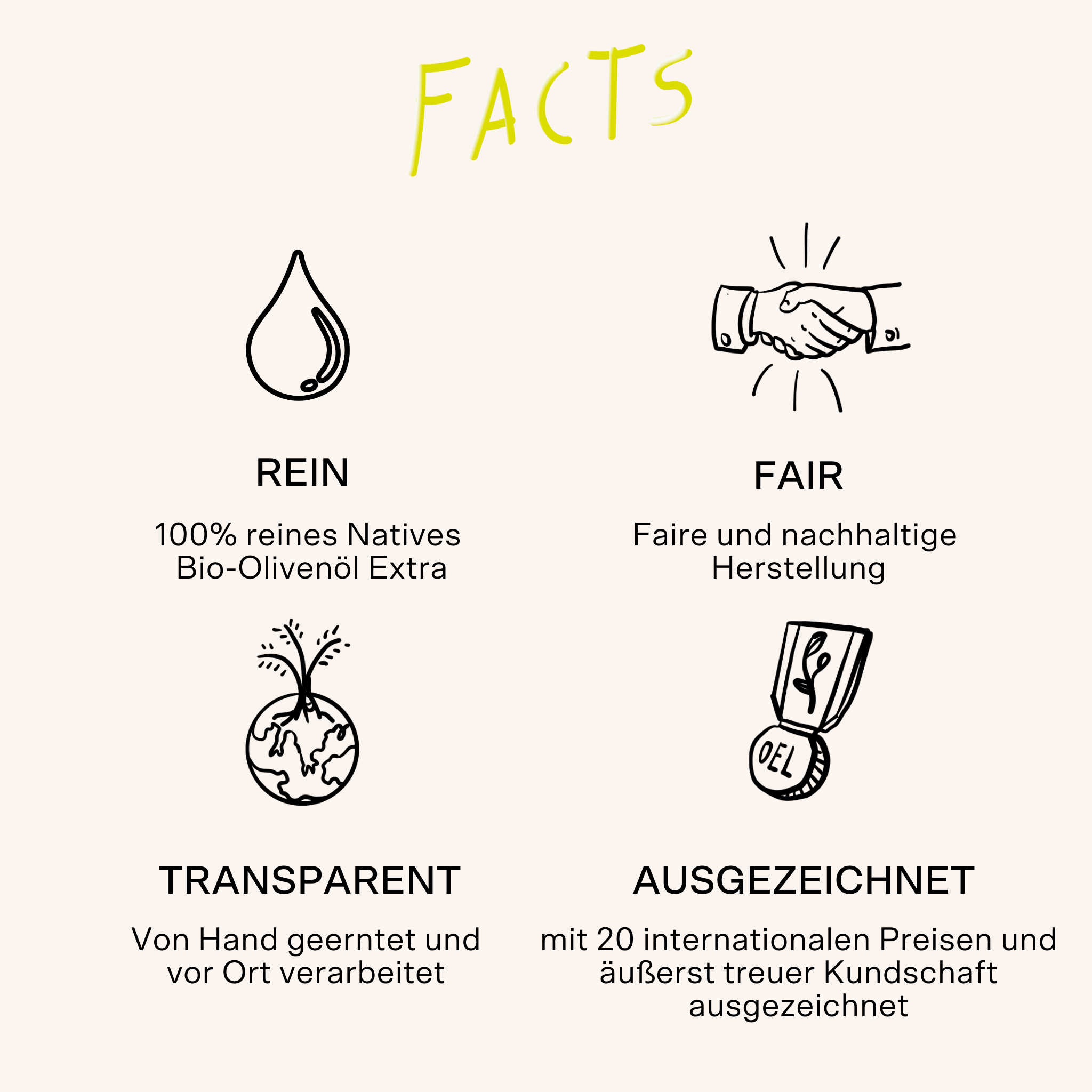
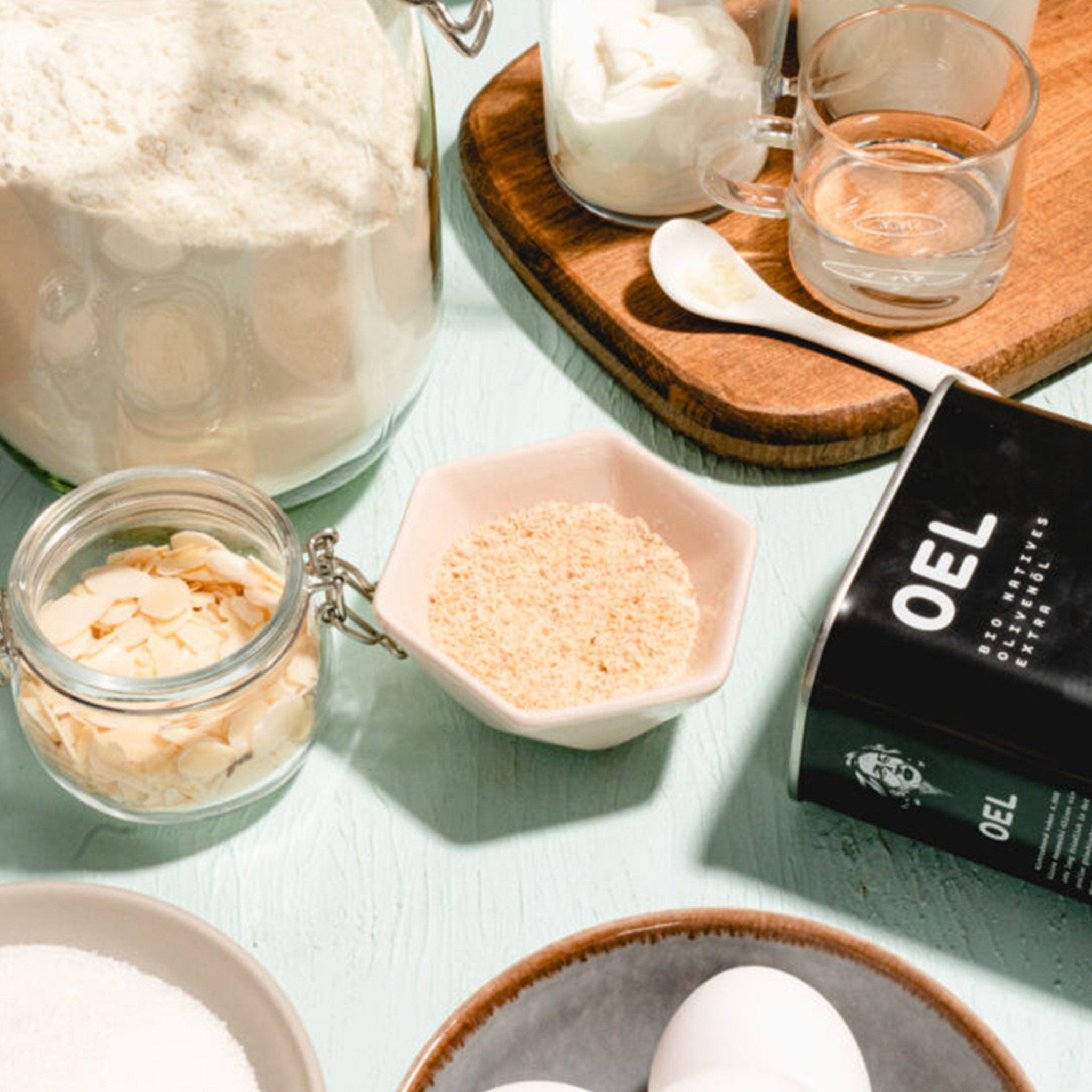
Organic Extra Virgin Olive Oil from Greece 3 l
Multi-award-winning organic olive oil - harvested by hand
Tax included. Shipping calculated at checkout
 You will receive €3,60 Guthaben when you purchase this item.
You will receive €3,60 Guthaben when you purchase this item.
Subscription (and save 10%) or one-time:
Liquid gold!
➤ Harvest 11/2024
➤ Extra virgin olive oil from Greece
➤ Organic farming
➤ Single variety: 100% Koroneiki olives
➤ Cold extracted (< 27° C)
➤ Acidity < 0.5%
➤ Taste of fresh grass, nuts and citrus fruits
➤ 3 liters in a recyclable tin canister (BPA non-intent)
OEL is a pure olive oil of the highest quality.
For OEL, we use only Koroneiki olives from reliable sources, including our own olive grove in Andania and the groves of Ilias, who operates the state-of-the-art oil mill in Andania. All olives for OEL are cultivated in organic farms and harvested by hand. This protects flora and fauna.
The olive oil is cold extracted in Ilias' oil mill and immediately filled into stainless steel tanks under an airtight seal.
(Good to know: Some canisters may develop a small dent on their way to you. This does not represent a reduction in quality.)

 You will receive €3,60 Guthaben when you purchase this item.
You will receive €3,60 Guthaben when you purchase this item.
Excellent quality
Awarded twelve prizes at the most important olive oil competitions in the world.
frequently asked Questions
What makes olive oil from OEL so special?
The OEL brand stands for 100% pure Greek organic extra virgin olive oil:
The olives of the Koroneiki variety are grown organically near Kalamata in the Messinia region of the Peloponnese peninsula. The harvest is done by hand. We actively participate in harvesting and production every year because we want to be able to control and control the entire production chain ourselves.
The taste of the small green Koroneiki olive is legendary and its composition is unsurpassed. There is a reason why Koroneiki oil is the most popular olive oil in Greece.
But the geography and climate of the Messinia region also play a decisive role in the taste of OEL olive oil. The mountainous, extremely dry, stony region, which is very hot in summer, demands a lot of robustness and composure from the trees and the farmers. The result is an olive oil with flavors of citrus fruits and nuts.
Where does OEL olive oil come from?
The Koroneiki olives for OEL grow near Andania, a small village near Kalamata. Our state-of-the-art oil mill is also located here.
The region around Kalamata is considered the most important olive growing area in Greece. Olives have been cultivated here for thousands of years. In addition to the edible Kalamon (or Kalamata olive) used for oil production, the small green Koroneiki variety dominates here.
For good reason: The stony, hilly landscape, the hot summers and mild winters offer ideal conditions for the very aromatic, slightly bitter Koroneiki olives.
What does “nativ extra” stand for?
Extra virgin olive oil is the highest quality category. Regarding its organoleptic properties, it has no defects; the taste is fruity. Its acidity must not exceed 0.8%.
The temperature of an extra virgin olive oil must not exceed 27 °C during production. This is important to protect the ingredients. Only under this condition can olive oil be called “cold-pressed” or “cold-extracted” and therefore “extra virgin”.
Other names: extra virgin, extra virgin
What is pure olive oil?
Single-variety means that only olives of one variety are used to produce oil - in our case the Koroneiki variety.
There are more than a thousand varieties of olives worldwide. And most olive oils on the market are blends, i.e. mixtures of oils from different types of olives, often unfortunately of different quality classes.
What does “Bird Safe” mean?
Our olives come exclusively from traditionally farmed areas
Groves in the Kalamata region that are harvested by hand during the day.
No bird or any other creature larger than a fingernail will be harmed here. We strictly reject industrial cultivation methods with fully automatic night-time harvesting, which can kill sleeping birds.
How does cold extraction work?
There are two methods to extract oil from the olive mash, i.e. to separate solid from liquid and oily from water: by pressing or by extraction using a centrifuge. This is where it is decided whether an olive oil is cold-pressed or cold-extracted during production.
The press presses the mash between mats and the centrifuge extracts the oil from the mash at several thousand revolutions per minute. The centrifuge is proven to be the gentlest method for processing olives after harvest. Our OEL is then immediately filled with UV and temperature insulation.
Why does OEL come in the canister?
We chose the tin canister as packaging for several reasons:
OEL is sealed in the canister in an airtight and opaque manner - two very important criteria for preserving the valuable ingredients.
Tinplate is very easy to recycle. Because it is magnetic, it can be easily fished out in sorting facilities and has one of the highest recycling rates of all packaging (91.1% in 2019, compared to glass 83.4%)
The canister has a very low weight and can be packed efficiently thanks to its square shape. This saves fuel on the long journey from Kalamata to Berlin.
Comparison of OEL, A! and olive oil from the supermarket
What makes OEL so special?
OEL Organic Extra Virgin Olive Oil is more expensive than olive oil from the supermarket. We'll show you why here:
OIL
A!
Supermarket olive oil
Yes
No
Yes No
Koroneiki
Koroneiki
Not known, mostly a blend
Native Extra
Native Extra
From extra virgin to sophisticated
From organic farmers in Andania
From farmers in Andania
Origin not traceable
Ripe
Ripe olives
Ripe
Harvested by hand
Harvested with tools
Unknown


